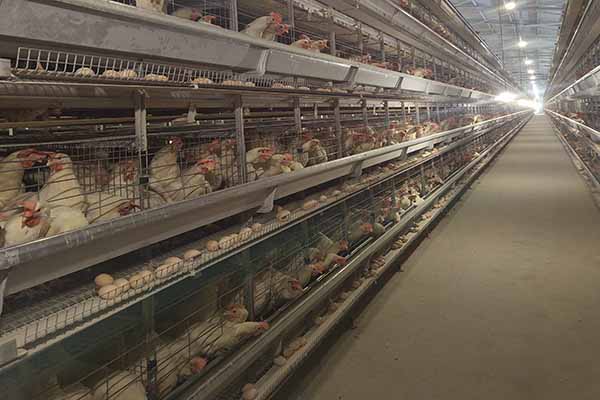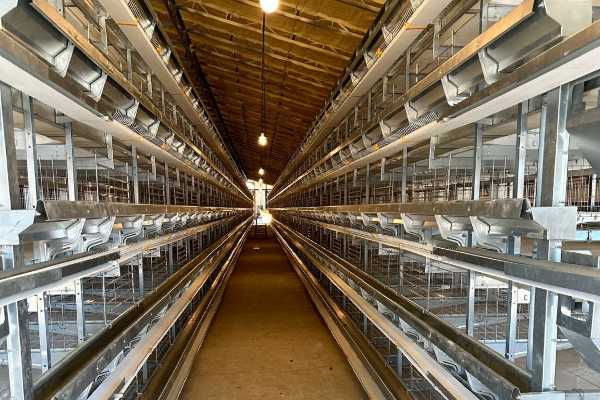Organic Chicken Farming in Kenya: A Comprehensive Guide
Time : 2025-05-12
Kenya, with its rich agricultural landscape and diverse climate, has emerged as a hub for organic chicken farming. This eco-friendly approach to poultry production has gained significant traction among farmers and consumers alike. In this article, we’ll delve into the world of organic chicken farming in Kenya, exploring its benefits, challenges, and the best practices to ensure a sustainable and profitable venture.

Understanding Organic Chicken Farming
Organic chicken farming involves raising chickens in an environment that mimics their natural habitat. This means providing access to the outdoors, ensuring they have access to fresh air and natural sunlight, and feeding them organic feed. The goal is to produce chickens that are not only healthier but also more ethical and environmentally friendly.
Benefits of Organic Chicken Farming in Kenya
There are several reasons why organic chicken farming has become popular in Kenya:
- Healthier Birds: Organic chickens are less prone to diseases due to their natural diet and living conditions.
- Enhanced Flavor: The natural diet and environment contribute to the development of a richer, more flavorful meat.
- Environmental Sustainability: Organic farming reduces the use of harmful chemicals and preserves the soil’s health.
- Market Demand: There is a growing demand for organic products, both locally and internationally.
Setting Up an Organic Chicken Farm in Kenya
Starting an organic chicken farm requires careful planning and consideration of various factors. Here’s a step-by-step guide to help you get started:
1. Research and Planning
Before diving in, it’s essential to conduct thorough research. Understand the local market demand, regulations, and the types of organic chickens that thrive in your region.
to conduct thorough research. Understand the local market demand, regulations, and the types of organic chickens that thrive in your region.
2. Choose the Right Location
The ideal location for an organic chicken farm should have plenty of space for the chickens to roam, access to clean water, and a favorable climate.
3. Build the Coop
The coop should be well-ventilated, protected from predators, and designed to allow for natural light and movement. Consider using sustainable materials to minimize your environmental impact.
4. Select Organic Chicken Breeds
Choose chicken breeds that are well-suited to your region’s climate and have a high demand for organic meat. Kenyan farmers often opt for breeds like the ISA Brown, which are known for their disease resistance and fast growth.
5. Feed and Water
Organic chicken feed should be free from genetically modified organisms (GMOs), antibiotics, and growth hormones. source organic grains, legumes, and insects to provide a balanced diet.
Best Practices for Organic Chicken Farming in Kenya
Here are some best practices to ensure the success of your organic chicken farm:
1. Regular Health Checks
Implement a regular health check-up schedule to identify and treat any health issues promptly. This will help reduce the use of antibiotics, which is a key requirement for organic farming.
2. Manage Waste Responsibly
Organic chicken farming generates a significant amount of waste. Ensure you have a proper waste management system in place to minimize environmental impact.
3. Engage with Local Markets
Build relationships with local markets and restaurants that are interested in organic products. This will help ensure a steady demand for your chickens.
4. Stay Informed about Regulations
Keep up to date with the regulations and certifications required for organic chicken farming in Kenya. This will help you maintain compliance and access the organic market.
Challenges and Solutions
Organic chicken farming in Kenya comes with its own set of challenges:
- High Initial Costs: The cost of organic feed, building coops, and obtaining certifications can be prohibitive.
- Market Access: Finding markets that are willing to pay a premium for organic products can be difficult.
- Climate Change: The unpredictable weather patterns can affect the growth and health of the chickens.
Here are some solutions to these challenges:

- Invest in Cost-Effective Practices: Look for ways to reduce costs, such as sourcing organic feed locally.
- Expand Market Reach: Explore online markets and attend agricultural fairs to reach a wider audience.
- Adapt to Climate Change: Diversify your farming practices and consider insurance to mitigate the risks associated with climate change.
Conclusion
Organic chicken farming in Kenya offers a sustainable and profitable business opportunity. By following these guidelines and best practices, you can create a successful organic chicken farm that benefits the environment, the community, and your bottom line.











